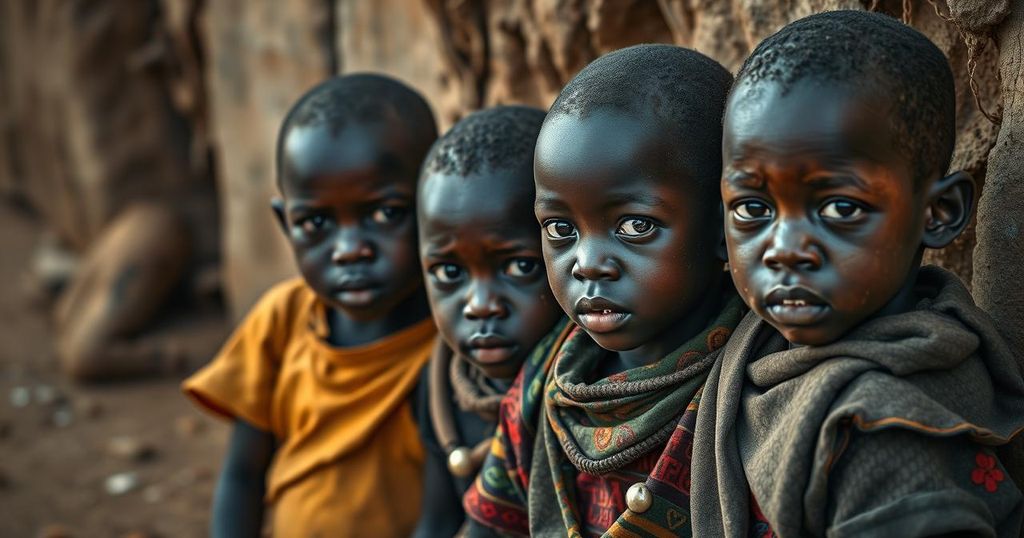Children of Sudan’s War: The Threat of a Lost Generation
The conflict in Sudan has led to a grave humanitarian crisis, particularly impacting children who face displacement, malnutrition, and violence. With nearly five million children affected, many lack basic necessities and educational opportunities. The situation remains dire, with humanitarian aid hindered by funding shortages and escalating violence. Calls for international support are critical to prevent a lost generation in Sudan.
The ongoing conflict in Sudan has tragically culminated in a catastrophic humanitarian crisis, particularly affecting children who have become the most vulnerable victims of this war. Amina, a grieving mother, shared the heart-wrenching details of her son Ahmed’s death amidst gunfire in April, symbolizing the profound loss faced by families. Since the onset of violence 18 months ago, nearly five million children have been displaced, with thousands losing their lives, while those who survive are engulfed in despair and malnutrition. Reports indicate that famine is spreading rapidly across Sudan, threatening the lives of many children who lack basic necessities such as food, education, and healthcare. Refugee camps in South Sudan, like the Kaya camp where Amina now seeks refuge, are overwhelmed with families escaping the violence, yet the conditions remain dire. Lack of sufficient food rations, compounded by disease and the trauma of war, leave many children like 11-month-old Muna and her grandmother, Hawa, in a perilous situation. The alarming rates of acute malnutrition and the consequent health implications are worrisome for the future of these children. Moreover, the educational landscape in Sudan has disintegrated, as the ongoing conflict has led to the destruction of schools and a staggering 90% of school-age children lacking access to education. Refugee children, like Amir, a former computer science student, express deep distress over the loss of their educational opportunities, as they confront severe emotional impacts from the war. As international aid organizations attempt to address these challenges, they face obstacles such as funding shortages and restricted access, which impede their efforts to provide basic aid. Human rights violations against children continue unabated, with alarming reports of child soldier recruitment and sexual violence. Despite ongoing appeals for support, the humanitarian community notes a critical need for immediate international attention and intervention to avert the impending loss of a generation of children in Sudan.
The war in Sudan, which began in April 2022, stems from a power struggle following the overthrow of former leader Omar Al-Bashir in 2019. The conflict primarily involves the Sudanese army and the paramilitary Rapid Support Forces (RSF), leading to widespread violence and displacement across the nation. With over eight million people displaced within Sudan and millions more fleeing to neighboring countries, the crisis has evolved into the largest child displacement crisis globally. Children are disproportionately victims of this conflict, facing extreme challenges, including starvation, lack of education, and exposure to violence.
In conclusion, the ongoing conflict in Sudan poses an unprecedented threat to the lives and futures of millions of children. Without immediate and robust international intervention, there is a significant risk of creating a lost generation, as children experience extreme deprivation, emotional trauma, and violations of their basic rights. Humanitarian organizations call for urgent funding, safe access to vulnerable populations, and a cessation of hostilities to support the affected children and secure their futures.
Original Source: www.middleeastmonitor.com




Post Comment